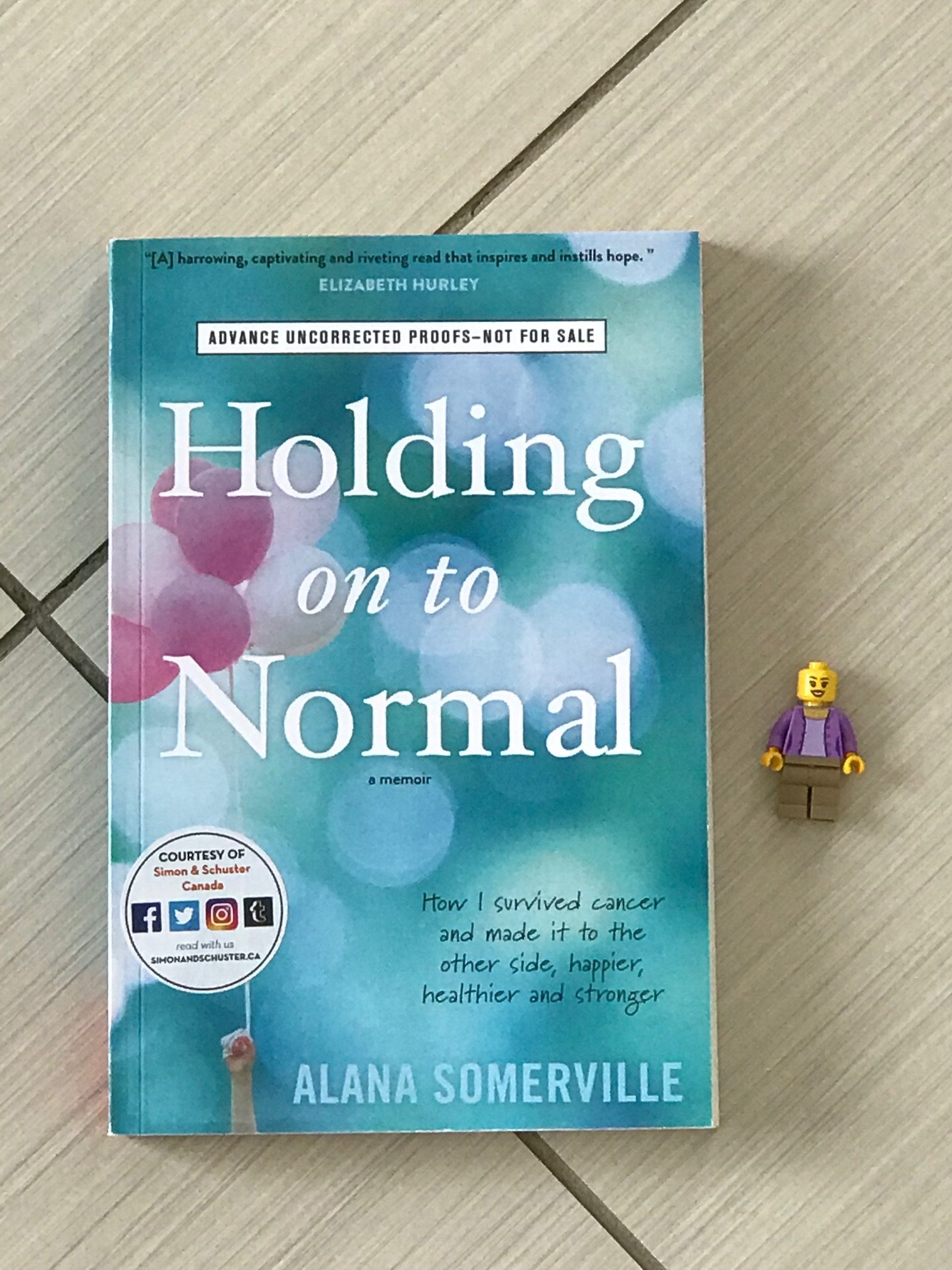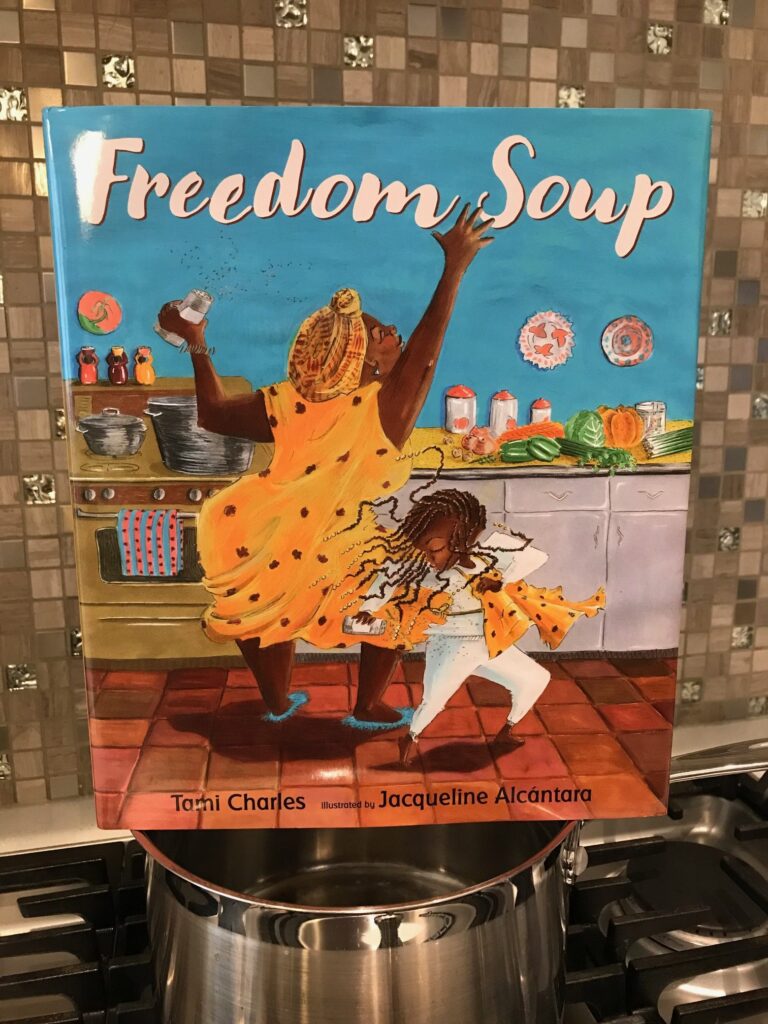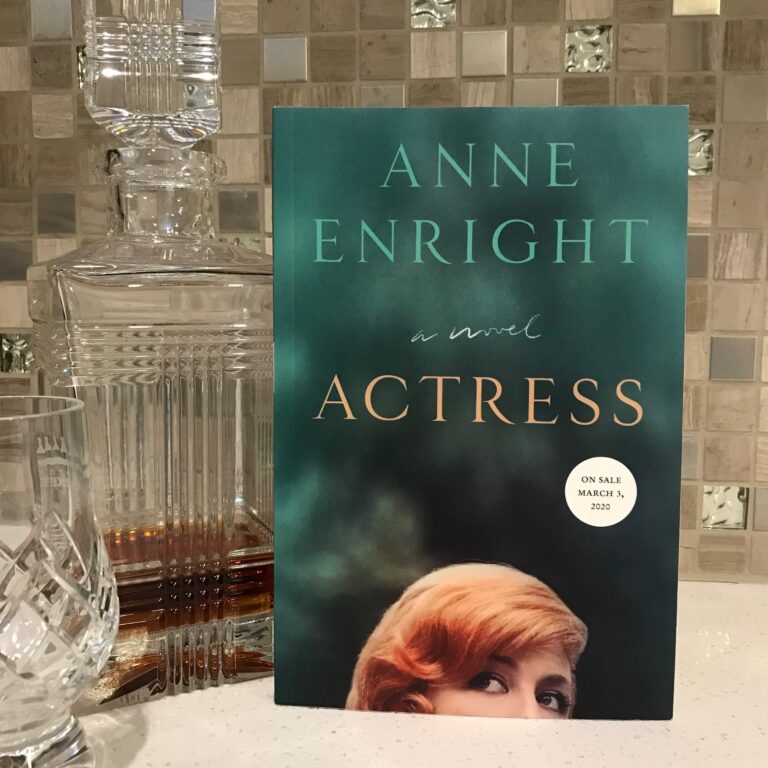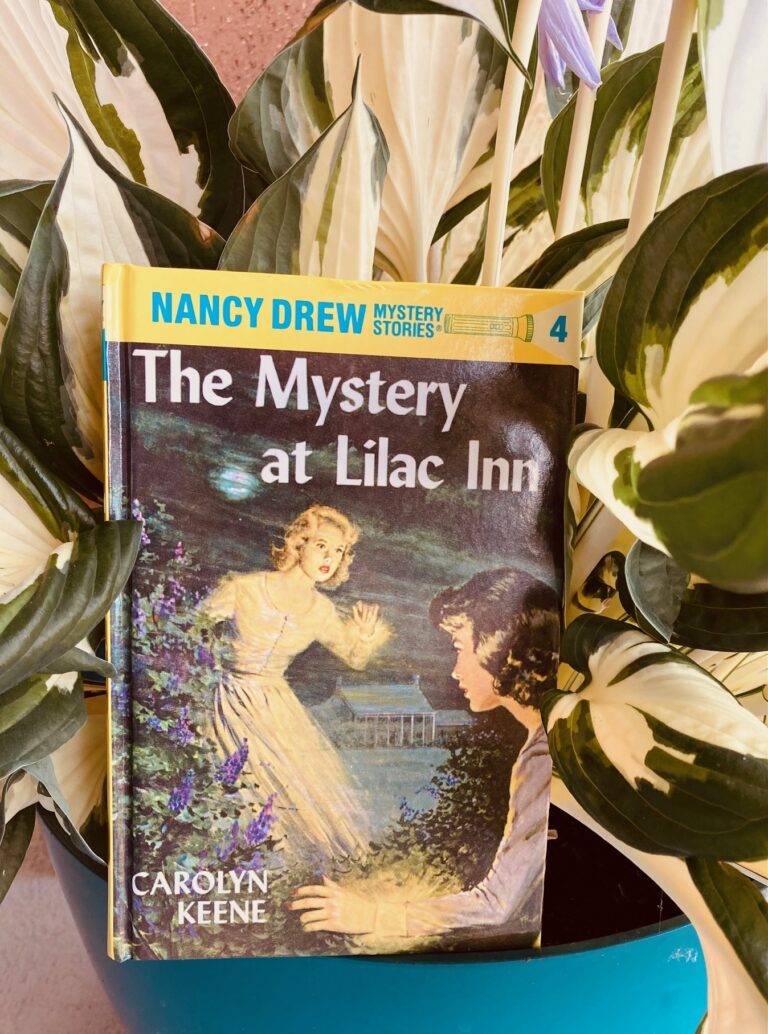Book Review: Holding on to Normal by Alana Somerville

Holding on to Normal by Alana Somerville is a memoir. It’s about a 33-year-old mother of two young children who is diagnosed with breast cancer; her journey of discovering the lump, deciding on treatments and reconstructive surgeries and then enduring the chemotherapy that led to her recovery. Why did I choose to read this difficult book during a pandemic? I honestly have no idea why I picked this out of the close-to-a-hundred other options on my shelf, but here we are.

Somerville’s story felt very real to me. The lead-up to her diagnosis is an anxiety-inducing few chapters, from her initial realization that she had a strange lump to the fateful appointment where her cancer is confirmed (after many tests). I raced through the pages desperate to reach what I already knew was coming. I have so much in common with Somerville too, I felt like I was right there with her; a young mother of two myself, the amount of stress that diagnosis would have caused in my own life seems insurmountable. Perhaps the biggest difference between her life and mine is that none of her family had a history of cancer, while mine is riddled with it. As I’ve mentioned before on this blog, my mother had both skin and breast cancer, succumbing just before her 50th birthday. And like Alana, she was also a teacher living in Southern Ontario. Can you see now why reading this book was so difficult for me? But despite my initial reluctance to read the book, I pushed through anyway (as I always do) because I’d had the book since the beginning of 2018 and it wasn’t about a pandemic, so what were my excuses? And I knew she survived the whole thing so I expected and looked forward to a happy ending, which is something we all need right now. Plus, it’s short! My favourite kind of book.

Not surprisingly, the story is inspiring, and Somerville’s struggles puts our current challenges in perspective. Women with young children will identify with this book the most because the exhaustion Somerville describes is such a common experience, yet hers is compounded by the toxic medications she’s on. The most vulnerable aspect of her writing is the embarrassment and dread she experiences over losing her hair. For young women, a drastic change in appearance like hair loss is devastatin, because it not only changes the way we feel about ourselves, but it alters the way others see us. Like the other challenges thrown her way, Somerville works through this too, acknowledging her emotions and coming out stronger on the other side.
My problem with the book is the writing. Somerville’s voice is flat, filled with cliches and obvious observations, for example: “In the admitting department I filled out what seemed like a huge stack of paperwork (I felt as though I was signing my life away)” (p. 39 of ARC). Is this meant to be a joke, did she feel like she was about to die, or does she have privacy issues? Who knows, but it was little asides like this that seemed completely unnecessary and oftentimes confusing. Which led me to the question; why her? This is an experience that unfortunately, so many people go through, so what makes Somerville’s story worthy of a book published by one of the biggest publishers in the world? Believe me, I feel a certain pang of cruelty in questioning the point of a cancer survivor’s story because Somerville’s tale is one of hope that can help others, but I still can’t ignore that nagging feeling that the writing leaves so much to be desired.





I know, thank god for happy endings right now!
It could be that she was pulling from diary entries and other mundane records in writing this book and, in an effort to remain true to the original “material”, it remains rather lacklustre? I feel like this must be a hard decision to make, from an editorial perspective, because of course if you were to polish it too much, it might sound insincere?
On the other hand, I see a lot of cliched language in first (and sometimes second) books and I wish there had been editors on hand to make suggestions (so that we would know it’d be a deliberate stylistic decision, rather than simply a rush to publication).
Congrats on working through your older ARCs. Do you have them all stacked/shelved together or have they infested every corner…and then some?
I’ve got all my books on one shelf, and they’re sorted by when they arrive on my doorstep, so generally oldest to newest. Not very imaginative I know LOL
Perhaps not very imaginative, no, but certainly effective. That’s how I arrange mine as well, because otherwise it’s all a bit of a blur as time marches on and one wants to be fair about it.